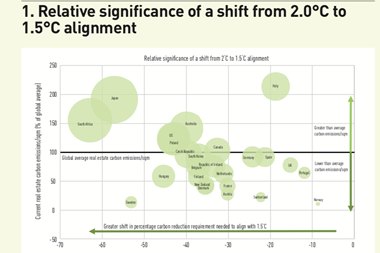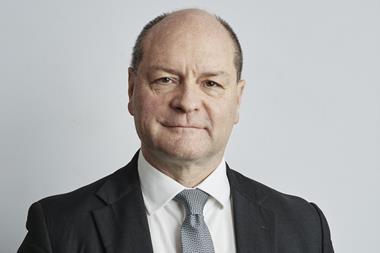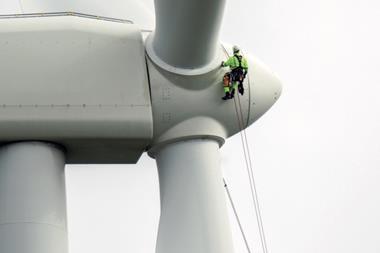BlackRock’s Climate Finance Partnership (CFP), an investment fund planning to cut carbon emissions in emerging markets, has raised an initial $250m (€211m) from a group of investors including governments and institutional investors.
BlackRock said the amount raised by CFP at the first close represents half of a $500m minimum targetted at the final close for the fund.
According to the manager, the initial fundraising was backed by a global consortium of ten investors including the French Development Agency, Germany’s KfW Development Bank and the Japan Bank for International Cooperation.
The government agencies, together with the Grantham Environmental Trust, the Quadrivium Foundation, and another private foundation committed a combined $112.5m in “catalytic capital” to the fund, BlackRock said.
Further capital commitments to the CFP fund were received from Dai-ichi Life Insurance, Standard Chartered Bank, MUFG Bank, as well as commitments from an unnamed European pension fund and a strategic banking partner.
“We are honoured to collaborate with this group of like-minded organisations from the public and private sectors to raise initial capital that will be used to help unlock the energy transition in emerging markets through the Climate Finance Partnership,” said Edwin Conway, the global head of BlackRock Alternative Investors.
CFP will target climate infrastructure sector investments in select countries in Asia, Latin America, and Africa.
Rémy Rioux, the CEO of the French Development Agency, said the unique challenges posed by climate change call for stronger joint action, public and private.
“This ambitious partnership, forged with Germany, Japan and leading global foundations, will help redirect financial flows toward sustainable development investments across the emerging world, with a priority to Africa as a key continent to France and Europe and one of the most vulnerable regions to climate change despite contributing the least to global warming.”
State Secretary Jochen Flasbarth from the German ministry for the environment, nature conservation and nuclear safety said: “I am excited that the Climate Finance Partnership is now aiming to bring additional institutional capital on board for investments in the energy transition in emerging markets.
“We are supporting this Partnership because we believe that combining the strengths of the public and private sectors is necessary in order to align finance flows with low-carbon and climate-resilient development.”
Tadashi Maeda, governor of the Japan Bank for International Cooperation, said, the government of Japan aims to reduce greenhouse gas emissions to net-zero and realise a carbon-neutral society by 2050.
“Participating in CFP as a catalytic partner is in line with such mission and we are pleased to contribute to the sustainable development of developing countries and provision of private capital to low-carbon investment opportunities.”
Seiji Inagaki, president and representative director of the Dai-ichi Life Insurance Company, said: “We actively pursue climate-related opportunities by investing in and financing projects such as renewable power to create positive impacts.
“We believe CFP will greatly contribute to solving various issues in emerging countries such as decarbonization, and we are pleased to invest in this fund.”
Simon Cooper, CEO of corporate, commercial and institutional banking and CEO of Europe and Americas at Standard Chartered Bank, said: “The CFP’s objective, to invest in a diversified portfolio of climate infrastructure in emerging markets, can help bring about positive environmental and social impact in line with the United Nations’ Sustainable Development Goals.
“This fits squarely with our aims at Standard Chartered to mobilize finance to where it matters most.”
Hironori Kamezawa, president and group CEO, Mitsubishi UFJ Financial Group, said: “MUFG Bank appreciates this opportunity to expand our support of bringing more renewable energy to emerging markets where it is truly needed.
”CFP’s focus fits well with our commitment to responsible investment and our declaration to reach carbon neutrality by 2050.”
To read the digital edition of the latest IPE Real Assets magazine click here.

















